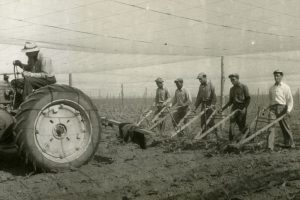Dr. Fiona Vernal’s research on Connecticut’s West Indian immigration history has been featured on the Uconn Today page. Dr. Vernal’s research discusses–
“Guest workers arrived in America through bilateral labor agreements between British West Indian colonies and the United States, says Vernal, whose family origins are in Jamaica. They were men who replaced the thousands of Americans who left their jobs to fight in the war, some working in industry, but most in agriculture.
The shade tobacco workers from the West Indies islands lived in camps at Bradley Field and other locations, and soon began to develop a sense of community, Vernal says, when for the first time people from the island nations in the Caribbean got to know each other through a broader West Indian lens. Other than workers laboring in the banana and sugar industries, the only other large scale effort that previously brought men from the Caribbean island nations together was the building of the Panama Canal.”
Fiona Vernal is a native of Trelawny, Jamaica and grew up in Trenton, New Jersey. She earned her BA in history with a certificate in African American Studies from Princeton University in 1995 and her MA and PhD from Yale. After completing her doctoral work in December 2003, she served as director of African Studies at Kalamazoo College, Kalamazoo, Michigan. Since 2005 she has taught at the University of Connecticut’s Department of History where her courses focus on precolonial, and colonial Africa, the history of South Africa, slavery, and the African diaspora. Since 2015, her teaching pedagogy has shifted to incorporate inquiry-based learning and human rights practice, yielding the exhibits: “Children of the Soil: Generations of South Africans under Apartheid” (April 2016) and the upcoming “Child Labor and Human Rights in Africa” in 2018.
